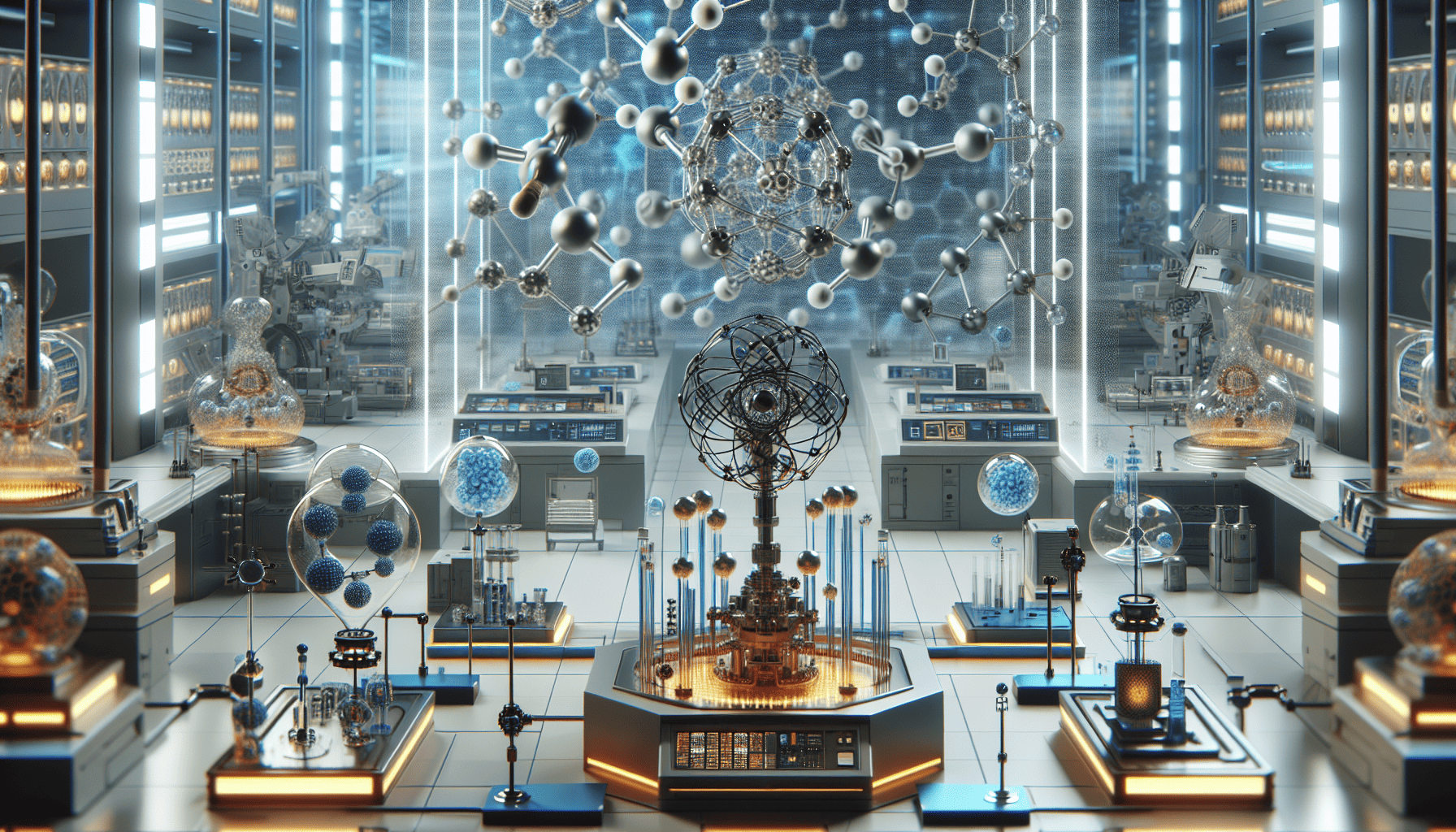In the ever-evolving landscape of science and technology, the frontier of molecular machines stands as a beacon of innovation and possibility. At the intersection of nanotechnology and molecular science, these machines represent the pinnacle of human capability to manipulate and construct at the atomic level. Their potential to revolutionize industries, from medicine to materials science, heralds a new era of technological advancements.
At the heart of molecular machines lies the concept of building structures with precision, atom by atom. Unlike traditional manufacturing processes, which often involve cutting, casting, or assembling components from larger materials, molecular machines work on a much smaller scale. They are capable of creating highly complex structures by reassembling atoms and molecules in a manner that mimics nature's own methods of construction.
One of the most profound applications of molecular machines is in the field of medicine. The ability to design and construct molecular devices with specific functions allows for targeted drug delivery systems that can seek out and neutralize diseases at their source. Imagine a world where cancer cells are directly targeted and eradicated by microscopic machines, greatly reducing the side effects and inefficiencies associated with current chemotherapy treatments. This isn't just the realm of science fiction; significant strides are being made in this direction through the development of nanorobots that can perform specific tasks within the human body.
In materials science, molecular machines hold the promise of creating materials with unprecedented properties. By manipulating molecules at an atomic level, researchers are beginning to design materials that are stronger, lighter, and more adaptable than any known before. These innovations have the potential to impact various industries, from aerospace engineering, where lighter and stronger materials can revolutionize the construction of aircraft or spacecraft, to electronics, where molecular precision can lead to more powerful and efficient computing devices.
The concept of self-assembly is another remarkable feature of molecular machines. This process enables molecules to autonomously organize into functional structures without external guidance, similar to how biological systems naturally construct complex proteins or cellular structures. Harnessing this capability allows scientists to develop systems that can self-repair or adapt to changing environments, which could be invaluable in everything from space exploration to everyday electronic devices.
However, with great potential comes significant challenges. The development and deployment of molecular machines require a deep understanding of chemistry, physics, and biology, all converging at the nanoscale. Moreover, ethical considerations regarding the use and implications of such technology must be addressed, spanning concerns over privacy, security, and ecological impact.
Despite these challenges, the pursuit of molecular machines continues to drive forward, fuelled by a shared vision of transforming our understanding and use of matter. Researchers around the world are collaborating to unravel the complexities of molecular interfaces and interactions, paving the way for breakthroughs that could redefine numerous facets of human life.
In conclusion, molecular machines represent a monumental step in humanity's ability to harness the fundamentals of the physical world. As we stand on the brink of this new frontier, the possibilities seem as boundless as the imagination, challenging us to rethink the limits of technology and encouraging a paradigm shift towards a future built from the ground up, atom by atom.
